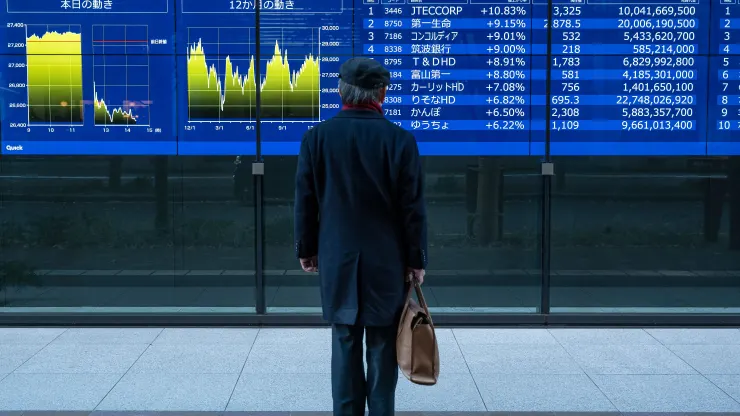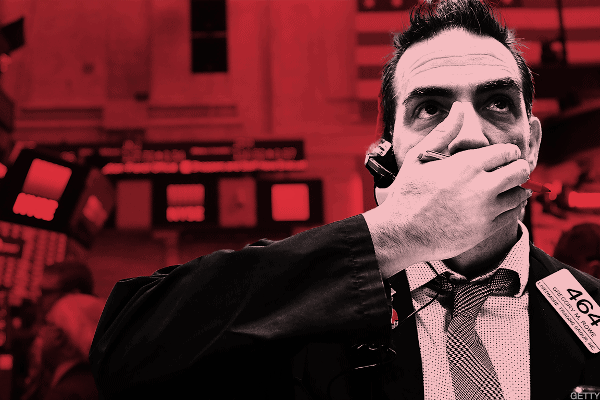
For the first time in decades, Japan stocks are back in vogue.
In the last few weeks, the benchmark Nikkei 225 and Topix indexes touched their highest levels in more than 30 years as foreign investors pour into Japanese equities with a consistency rarely seen in at least a decade.
After what turned out to be a false dawn a decade ago, when “Abenomics” first raised hopes of corporate governance reform in Japan, many seem to think better of the latest measures by the Tokyo exchange.
“The recent Tokyo Stock Exchange initiative is a game-changing moment, because it’s going to challenge a lot of companies that are trading on less than one-time price-to-book to improve profitability and support their share price,” said Oliver Lee, a Singapore-based client portfolio manager, at Eastspring Investments.
The Tokyo Exchange Group recently finalized its market restructuring rules. Among the latest measures was one that directed listed companies to “comply or explain” if they are trading below a price-to-book ratio of one — an indication a company may not be using its capital efficiently.
The exchange warned such companies could face the prospect of delisting as soon as 2026.
Part of the optimism in Japanese stocks stems from how specific and tangible the Tokyo exchange’s requirements are this time round. Warren Buffett’s bullish calls on Japanese equities has also helped boost confidence among foreign investors.
There is hope this would press Japanese companies’ notoriously resistant management — which typically view shareholders as enemies — for greater capital efficiency and profitability. It could in turn lead to a domino effect among other Japanese companies once the big players start to make changes.
“Until very recently, the problem was although there has been a rise in healthy corporate activism, companies and managers were still not so proactive listening to shareholder proposals,” Yunosuke Ikeda, Nomura’s chief equity strategist, told CNBC last week.
The scale for change — or disappointment — is tremendous.
The exchange said in March that half the number of its “prime” listings — the most liquid stocks with the largest market capitalization — and about 60% of those in the “standard” listings have a return on equity of less than 8% and are trading at price-to-book value of less than one.
Price-to-book value is the ratio of the total market value of a company’s share price over its book value — a company’s net assets. Return on equity is a gauge of a company’s profitability.
These companies must now show how they plan to improve their capital efficiency, since the data points suggest they may be trading below cost of capital and therefore unlikely to be capital efficient. Part of those rules require them to demonstrate how they have engaged investors and to begin publishing public disclosures in English.
If a company doesn’t meet enhanced listing criteria by the end of the ongoing transitional period and a further year-long “improvement period,” its securities may be put under supervision and could face the prospect of delisting within six months.
“Delisting or any punishment or any enforcement is quite unlikely, but the good news in Japan is there is the peer pressure factor,” said Nomura’s Ikeda. “If rival companies are doing great improvements in corporate governance, others will tend to follow that move.”
Long tail of Abenomics reform
The objectives are clear.
In a document published end-March, the Tokyo bourse operator wants to ensure companies achieve sustainable growth and increase corporate value over the mid- to long-term by focusing on the cost of capital and profitability based on the balance sheet, rather than just sales and profit levels on the income statement.
In other words, they want to see real strategic changes made in tandem with shareholders.
These reforms are part of a broader, multi-year structural overhaul that can trace their genesis to Abenomics — an aggressive set of economic policies that the late Shinzo Abe launched in the early 2010s, when he was prime minister.
Corporate governance is the “third arrow” of the three core tenets of Abenomics — monetary easing and fiscal stimulus are the other two. The much-touted economic policy was aimed at reviving economic growth and combating the chronic deflation that has plagued the world’s third-largest economy since the 1990s.
While the initial euphoria in Japanese stock markets over Abenomics was short-lived back in the early 2010s, investors now see a potential for a fundamental re-rating of Japanese equities should these latest corporate governance reforms take root.
“Investing in Japan equities is not investing in Japan macro, it’s not investing in themes,” said Shuntaro Takeuchi, a San Francisco-based Japan fund manager with Matthews Asia.
“It’s investing in more of a profit growth opportunity coming from margin improvement, return on equity improvement, total return improvement.”
The Buffett effect
This time, Japanese equities have also been endorsed by Berkshire Hathaway chairman and CEO Warren Buffett.
The legendary billionaire investor revealed in May that he had raised his stakes in five Japanese trading firms to 7.4% after an April visit to Japan. He said he may consider further investments.
Berkshire Hathaway first disclosed in August 2020 that it acquired initial stakes of slightly more than 5% in each of Japan’s top five trading houses — Itochu, Marubeni, Mitsubishi Corp., Mitsui & Co. and Sumitomo Corp. — and that it has been steadily increasing its stakes thereafter.
Known as “sogo shosha,” Japan’s trading houses are akin to conglomerates and do business in a wide variety of products and materials, and helped launch Japan’s economy on to the global stage.
While their diversified operations were part of the draw for Buffett, some investors have criticized their complex operations, and highlighted their growing exposure to risks overseas as they expanded internationally.
Buffett’s May disclosures helped spur 10 straight weeks of net foreign purchases of Japanese equities. Foreigners bought a net $57.8 billion worth of Japanese equities in the last 10 weeks until June 3, according to Japan Ministry of Finance data.
“There is a pressure from investors, especially foreign ones to comply,” said Asli M. Colpan, a professor of corporate strategy at Kyoto University’s Graduate School of Management and Graduate School of Economics.
“Better corporate governance has been attracting more international investors including the recent ones like Warren Buffett’s Berkshire Hathaway; and more international investors are putting more pressure for compliance — forming a virtuous cycle,” she added.
Cash rich, easy wins
And that’s already starting to tell.
“As a result of profit growth, the cashflow generation and accumulation is now at a level that more than 50% of corporates are net cash and might be hoarding too much cash on their balance sheet,” said Matthews Asia’s Takeuchi.
A tabulation by Nikkei shows Japanese companies will exceed 9 trillion yen ($66.6 billion) in the 2022 fiscal year that ended March 31 — the highest level of share buybacks in 16 years, according to the publication.
Mitsui & Co.’s buyback was its largest-ever and industrial giant Hitachi’s was its first buyback in eight years, the Nikkei reported.
“It’s an easy win for companies, CEOs or CFOs, to prove to the Tokyo Stock Exchange that they’re doing the right thing to support their share price,” said Eastspring’s Lee, referring to the share buybacks.
“But a bigger factor in the long term is whether they will retain the focus on profitability by cutting underperforming business units and restructuring,” he added.
These are more difficult decisions to undertake, but would ultimately be the real gauge of corporate Japan’s appetite for reform, greater efficiency and productivity.
Still, the broader direction of long-term structural change in Japan is clear.
In a world that is combating stubbornly high inflation and confronting anemic growth prospects, that’s just adding on to the appeal of the Japanese equity markets — with the help of Japan’s accommodative monetary policy, its comparatively more moderate inflation after years of chronic deflation, the weak yen, and relatively cheap valuations.
“We’re probably just halfway through that journey of corporate reform,” Lee said.























